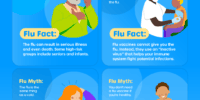Ticking Clocks – Healthy Aging Trajectory

Did you know that the average person’s heart is 8 years older than their age ?
New science shows us that our biological age (how much we’ve aged) is not the same as our chronological age (number of years we’ve been alive).
Makes you wonder about references to the female uterus timeline (“come on, your clock is ticking!”) or when people say they “feel old.” Have you ever thought about the “ticking clocks” on our other organs ? How do they age and at what speeds?
In a 2015 article in Time magazine, we learn that:
- After age 18, the collagen and elastin in our skin decreases by 1% each year
- In your 20s, the aerobic capacity of the heart can drop up to 10% per decade
- After age 35, we lose 1% of our bone mass each year
- After age 40, our eyesight begins to decline
- After age 50, the villi in our intestines (that help us absorb nutrients) will flatten out
You’ll notice that aging begins in some organs of the body much earlier than you may have thought! The time to address aging is NOW because the average person receives their first disease diagnosis in their 40s ….. But yet 70% of all healthcare costs are spent after age 70.
So … What’s happening between age 40 and age 70? Are we putting our health on the back-burner for later while the aging process is accelerating beneath the surface ? Are we not worried about it because we “can get by” right now? Do we believe that certain health problems are for “old people?”
We all want to live longer – but we don’t want to age.
What can we do TODAY to promote healthy aging?
One of the biggest factors in healthy aging is the mitigation of inflammation. Inflammation causes insulin resistance, cardiovascular disease, obesity, memory loss, arthritis, loss of muscle mass (which in turn decreases your ability to stay active) and much more.
So essentially eating the wrong things causes a destructive inflammatory process that ages us slowly like an ominous ticking clock. AND THEN it causes the statistically number one reason we will die (cardiovascular disease).
The second biggest factor to prevent premature aging is to protect against nutrient depletion. Nutrient depletion partially occurs naturally as we age (example: we lose 50% of our muscle mass by age 65) so it’s important to cater our nutritional strategies to our aging goals and adapt for different phases of our lives. But in 2015, it’s harder than ever to get our nutrients from food ! Between the toxicity in our food source from pesticides, the hormones found in our animal products, the GMOS, and the abundance of poor food choices marketed towards us its exceptionally difficult to get what we need from natural food sources.
One of my favorite examples of this is that about 50 years ago, you would find 450mg of magnesium in a serving of broccoli. Today there is 50mg in a serving of broccoli. But I digress!
Food alone will no longer provide nutrients that allow our cells to heal, repair, and age gracefully. It’s critical to work with a functional medicine practitioner to utilize personalized, high quality, safe nutraceuticals to give the body what it needs to function optimally.
It’s easier to prevent disease and premature aging than it is to reverse the hands of time. We need to think right, eat right, move right, sleep right. The time to think about healthy aging is now!
10 tips for promoting healthy aging
- Exercise regularly: Incorporate both aerobic and strength-training exercises into your daily routine to maintain physical and mental health.
- Eat a well-balanced diet: Include plenty of fruits, vegetables, whole grains, and lean protein in your diet to ensure you’re getting the nutrients you need.
- Stay hydrated: Drink plenty of water and limit your intake of sugary drinks.
- Get enough sleep: Aim for 7-9 hours of sleep each night to promote physical and mental wellbeing.
- Maintain social connections: Stay in touch with friends and family, and consider joining a social group to stay engaged and connected.
- Challenge your brain: Engage in mentally stimulating activities such as reading, playing games, or learning a new skill.
- Manage stress: Practice stress-management techniques such as meditation, deep breathing, or yoga.
- Avoid harmful habits: Quit smoking, limit alcohol consumption, and avoid exposure to toxic substances.
- Visit your doctor regularly: Regular check-ups and screenings can help catch and treat health issues early.
- Stay active: Participate in physical activities you enjoy and consider volunteering or joining a club to stay active and engaged in your community.
Statistics / References:
Center for Disease Control (CDC) website’s “Fast Stats”
Dr. John Troup, “Healthy Aging: New Science” presentation, Lifestyle Medicine Summit, 2015.
Jackson SH, Weale MR, Weale RA. Biological age–what is it and can it be measured? Arch Gerontol Geriatr. 2003 Mar-Apr;36(2):103-15.
Sifferlin, Alexandra (2013, Oct 21). What’s the fasting aging cell in the body? Time Magazine online.
www.pnas.org/cgi/doi/10.1073/pnas.1506264112, Published online 06 July 2015.








